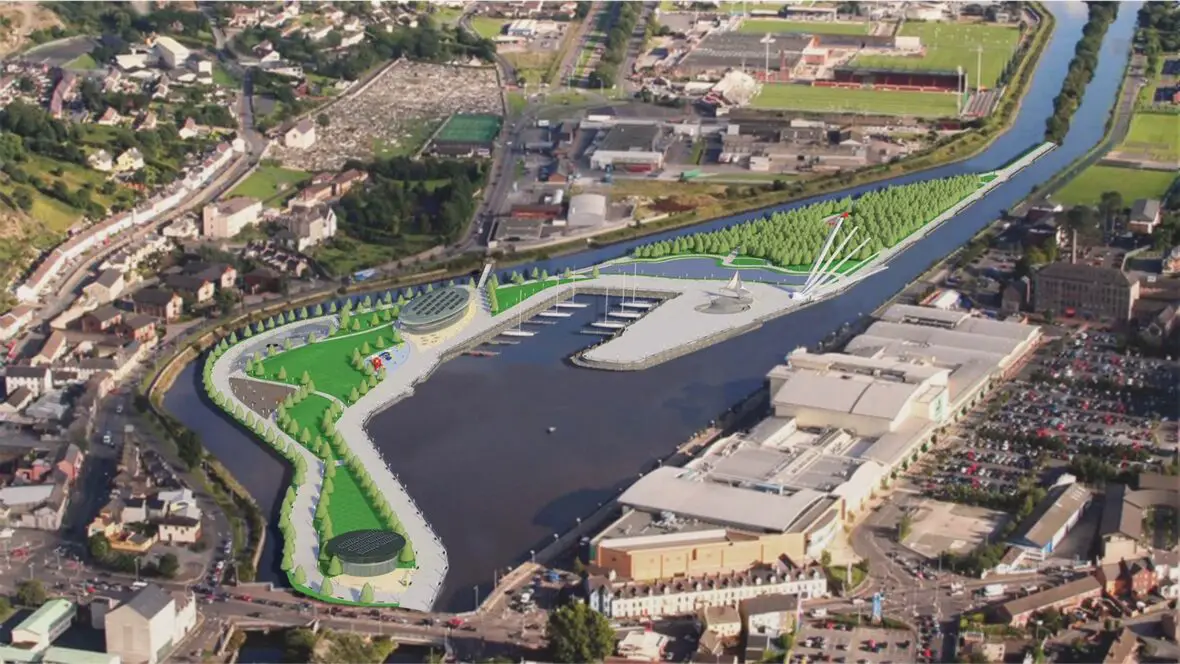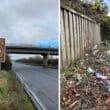
A multi-million pound city park project is facing an “acute risk” from invasive plants unless council staff can use a controversial weed killer to tackle it, officials say.
Newry, Mourne and Down District Council’s (NMDDC) environment committee voted in support on Wednesday night (May 22) for the use of the herbicide ‘Glyphosate’ at the Newry City Park site at Albert Basin.
An officer’s report identified ‘Giant Hogweed’ and ‘Japanese Knotweed’ needing to be treated at the waterway site on the banks of Newry Canal and the Clanrye River.
The chamber heard, a construction team is due to be on site to begin the £16m phase of the Newry City Park at Albert Basin by the Autumn 2025, though a weed treatment plan could take five years.
A council officer said: “Reduction of the use of herbicides is having a significant impact on the ability of the council to manage invasive species.
“There is an acute risk to the Newry City Park project at Albert Basin particularly from the proliferation of Giant Hogweed, which has spread significantly from 2022.”
He added: “We are up against it, timescale wise. We are looking approval for a dedicated treatment plan to go in on a number of occasions. It could be a five year programme to eradicate the likes of Giant HogWeed with a monitoring period of seven years afterwards.
“In relation to the use of Glyphosate at the waterside, there is a particular type of it which is safe and approved for use at water courses and that’s what we would use.”
Slieve Croob Sinn Fein cllr, Jim Brennan asked “as a dog walker” what were the “adverse implications” on using the chemical.
The officer responded: “I must confess I am not an expert on it, but I have read a lot of literature over the last few weeks, would you be happy if I came back to you on this?”
In April, despite visible scorch marks on grass verges, the council denied using Glyphosate along the Carlingford Lough Greenway, which is linked to Albert Basin.
NMDDC had previously signed off on a policy to end the use of the chemical in 2019 over a reduction period of four years. However,the extension of its use, not to exceed the lower level of 25% of the former base rate, was agreed in 2023.
Mournes DUP rep, Henry Reilly added: “Manually trying to remove weeds is totally ineffective. Glyphosate will kill plants that have very, very deep root structures.
“It is very important for the public to know there are millions of gallons of Glyphosate used in the UK every year in the farming industry.
“You don’t go into a field that’s been sprayed with Glyphosate for 24hours and after that there is no residue.
“It is important that people aren’t scared and afraid of this.
“It is not the big bogey-man issue that some people want to portray it as.”
A number of organisations have claimed that there is evidence linking Glyphosate, found in the council’s ‘Roundup’ weed killer, to cancer – something the product’s manufacturer has disputed.
Numerous international agencies, including the European Chemical Agency and European Food Safety Authority (Efsa), continue to declare Glyphosate as safe. However, in 2015, the
International Agency for Research on Cancer (IARC) ruled that glyphosate was “probably carcinogenic”.
Alliance cllr, Jill Truesdale opposing the recommendation said: “The reduction in the use of Glyphosate and getting the Newry City Park, were hard won battles, and to see them pitted against each other is disappointing.
“To see it used as a bargaining chip is poor form.
“Hogweed seeds in August and we are now in May so we are on a really tight timeframe and why is that? It will take years of reapplication to kill off Hogweed in this way, even after the park is built.”
She claimed: “It (Glyphosate) was sprayed on Ballyhornan beach two weeks ago. Before my term I committed to stop spraying near beaches because it causes erosion and damage to wildlife.
“So, why has it started again? It is a lazy use of Glyphosate. And it creates the impression that its use is still seen as the easy way out.”






